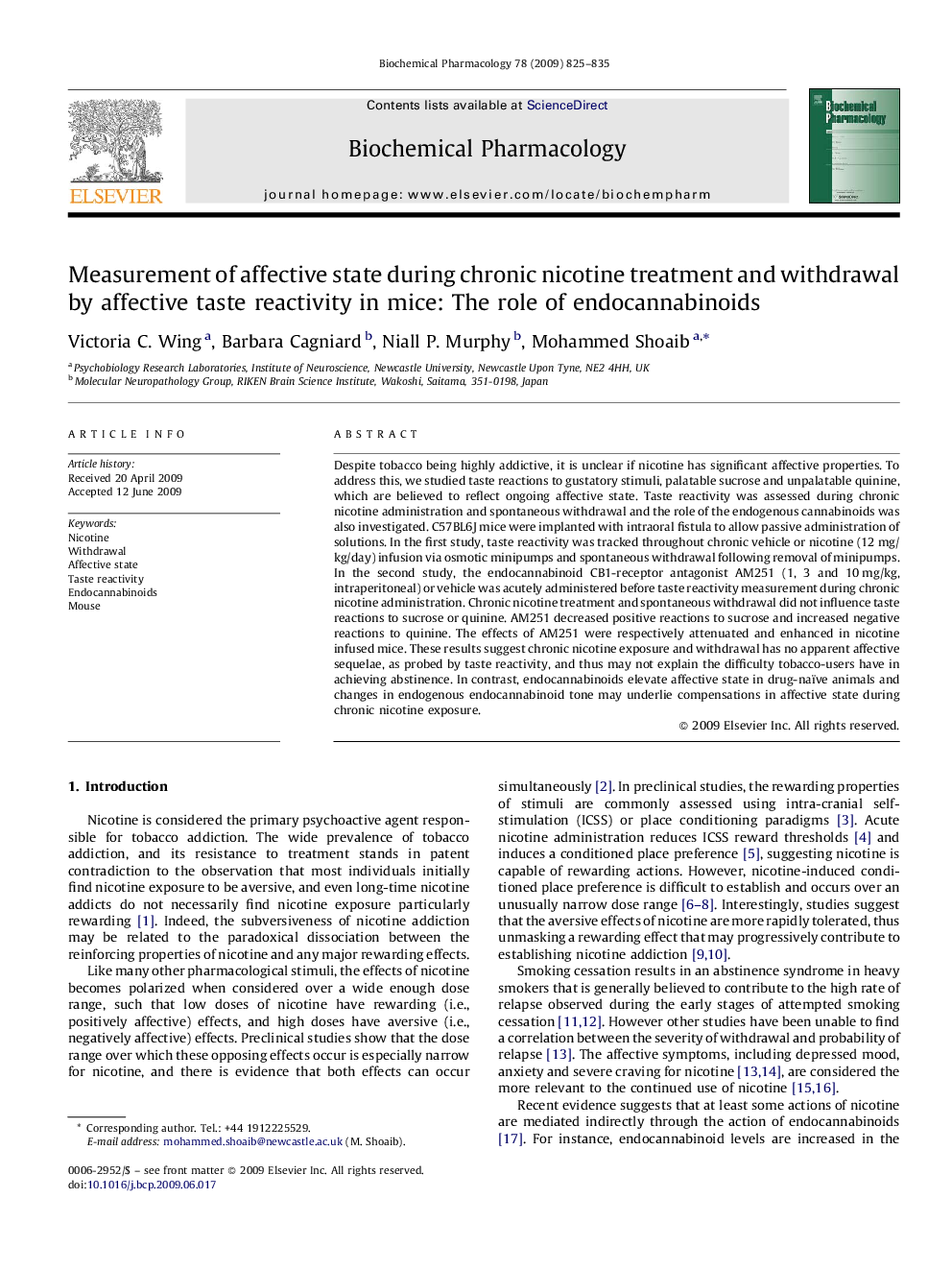| کد مقاله | کد نشریه | سال انتشار | مقاله انگلیسی | نسخه تمام متن |
|---|---|---|---|---|
| 2513864 | 1118438 | 2009 | 11 صفحه PDF | دانلود رایگان |

Despite tobacco being highly addictive, it is unclear if nicotine has significant affective properties. To address this, we studied taste reactions to gustatory stimuli, palatable sucrose and unpalatable quinine, which are believed to reflect ongoing affective state. Taste reactivity was assessed during chronic nicotine administration and spontaneous withdrawal and the role of the endogenous cannabinoids was also investigated. C57BL6J mice were implanted with intraoral fistula to allow passive administration of solutions. In the first study, taste reactivity was tracked throughout chronic vehicle or nicotine (12 mg/kg/day) infusion via osmotic minipumps and spontaneous withdrawal following removal of minipumps. In the second study, the endocannabinoid CB1-receptor antagonist AM251 (1, 3 and 10 mg/kg, intraperitoneal) or vehicle was acutely administered before taste reactivity measurement during chronic nicotine administration. Chronic nicotine treatment and spontaneous withdrawal did not influence taste reactions to sucrose or quinine. AM251 decreased positive reactions to sucrose and increased negative reactions to quinine. The effects of AM251 were respectively attenuated and enhanced in nicotine infused mice. These results suggest chronic nicotine exposure and withdrawal has no apparent affective sequelae, as probed by taste reactivity, and thus may not explain the difficulty tobacco-users have in achieving abstinence. In contrast, endocannabinoids elevate affective state in drug-naïve animals and changes in endogenous endocannabinoid tone may underlie compensations in affective state during chronic nicotine exposure.
Chronic nicotine treatment and spontaneous withdrawal did not influence taste reactions in mice, whereas AM251 differentially modulated taste reactions in saline and nicotine-treated mice.Figure optionsDownload as PowerPoint slide
Journal: Biochemical Pharmacology - Volume 78, Issue 7, 1 October 2009, Pages 825–835